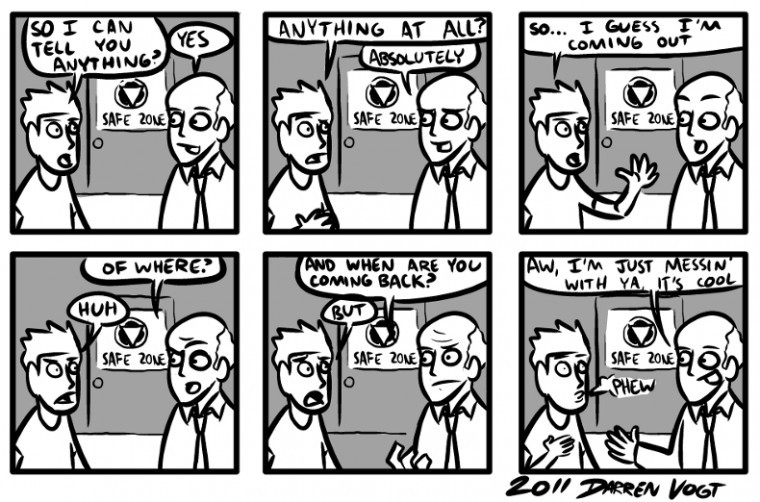EDITORIAL: You’re not alone: Safe Zone another step toward tolerance
March 1, 2011
The issue: Some students in the sexual minority may not always know where to turn for support on campus.
Our stance: Students should become familiar with faculty and staff members who have been trained through Safe Zone.
While there has been much progress in the acceptance and equal rights of homosexual citizens, there are still many students in the sexual minority who face discrimination and intolerance.
To counter this problem, Eric Manley, a staff psychologist in the Counseling and Testing Center, facilitates the Safe Zone program at WKU.
Safe Zone is a national effort started by The Ally Group. Though it was created to support many groups that are often targets of unfair treatment – whether because of their ethnicity, religion, disability or otherwise – the focus of Safe Zone on this campus is largely toward the gay community.
Manley contacts faculty and staff to invite them to workshops that prepare them to provide counseling or other help to lesbian, gay, bisexual, transgendered and questioning students.
Professional counseling is available on campus, but since students see and interact with their professors more frequently, they often build strong relationships. Safe Zone would provide a way for students to confide in faculty and staff who they are more familiar with, rather than a counselor who they have never met.
The Herald thinks the Safe Zone workshops would benefit not only students, but also faculty and staff members; the training could introduce them to methods of working with students they had not considered before. And once training is complete, faculty and staff members receive stickers to post in their office so students can identify it as a Safe Zone.
Everyone needs an ally. The Herald thinks Safe Zone could be that ally for many students. But programs are only effective when people actively use them.
Interested faculty and staff can attend workshops, offered throughout the semester, giving them the tools to inspire and support the LGBTQ student community. And students who might not have support within their families would have another outlet for building confidence, esteem and the assurance that they are not alone.
For more information, contact Eric Manley at [email protected] or (270) 745-3159.
This editorial represents the majority opinion of the Herald’s 10-member editorial board.
























